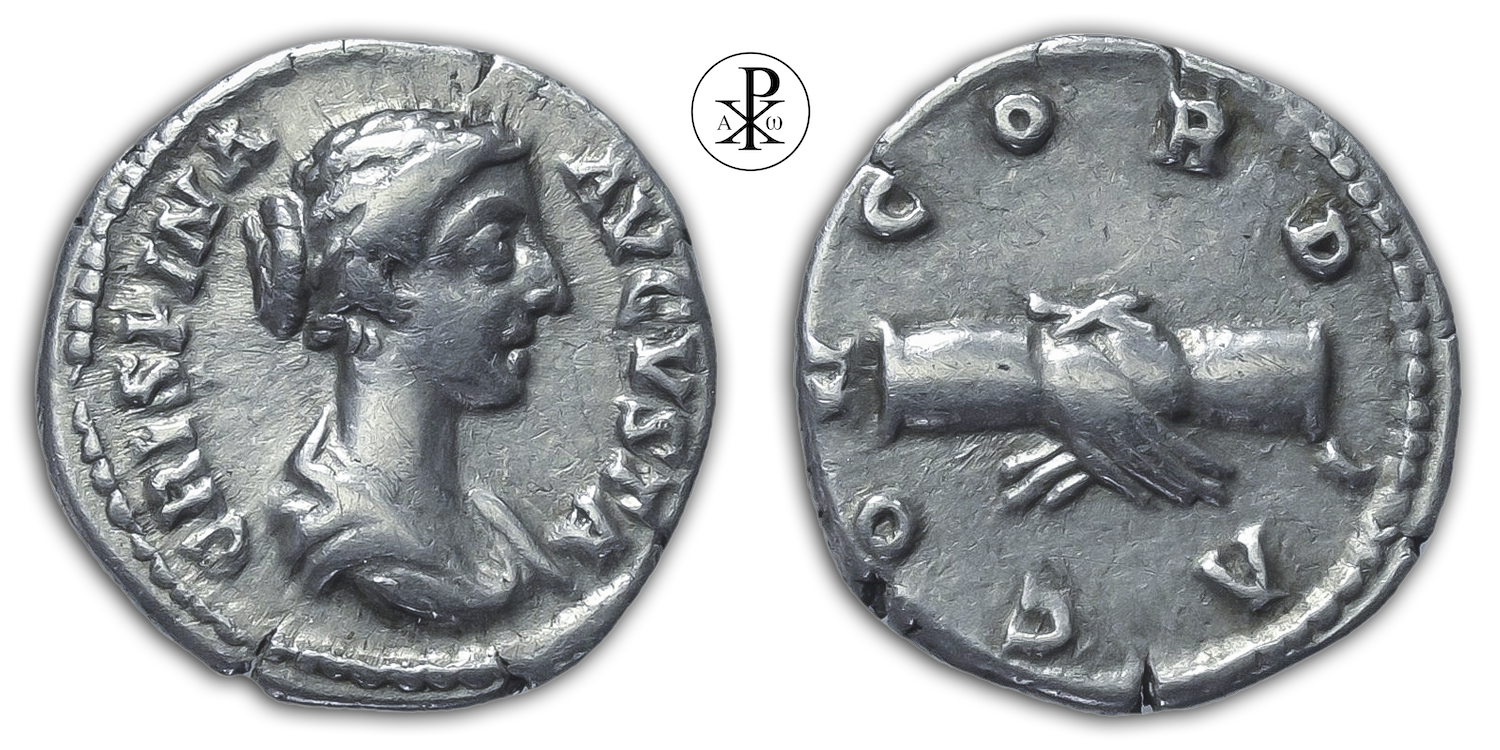Bruttia Crispina
Reign: Marcus Aurelius or Commodus
Mint: Rome
Date: 178/182 AD
Nominal: Denarius
Material: Silver
Diameter: 18mm
Weight: 3.33g
Reference: RIC III Commodus 279b
OCRE Online: http://numismatics.org/ocre/id/ric.3.com.279b
Rare: R1
Provenance: Solidus Numismatik Munich, Germany (Auction 116, Lot 211)
Pedigree: –
Obverse: Bust of Crispina, draped, hair in round coil at back, right
Inscription: CRISPINA AVGVSTA
Translation: Crispina Augusta
Translation: [Bruttia] Crispina, the venerable
Reverse: Clasped right hands
Inscription: CONCORDIA
Translation: Concordia
Translation: Harmony
Comment: Bruttia Crispina, the daughter of C. Bruttius Praesens and Valeria Marcia Hostilia Crispina Moecia Cornelia, the sister of L. Bruttius Quintius Crispinus, was married by Emperor Marcus Aurelius to his son, the future Emperor Commodus, before he left for the Sarmatian campaign, from which he did not return (Cass. Dio LXXI 33, 1. Hist. Aug. Marc. 27, 8). She finds her death, after Commodus has come to the government, on Capri, where she was banished for adultery by her husband – probably around the year 182 AD. However, it is not likely that her banishment and her death falls before the consulate year of her brother (187 AD), whom then the emperor would not have honored with the consulate. Ultimately, the exact year of Crispina’s death remains hidden in the darkness of history – as well as the exact dating of her coins. One of the last coinages is probably from Alexandria with 181/182 AD as the year. Thus, the issues of the empress can be roughly narrowed down to the period 178-182 AD.
Under Commodus, her role as empress wife was presented on numerous coin types. Among others, she was associated with Ceres (fertility), Juno (Goddess of birth, marriage and care), Pudicitia (chastity), Venus (Goddess of love, erotic desire and beauty), the dis coniugalibus (the gods of marriage) and also – as on the denarius presented here – with Concordia (unity and harmony). These types of reverence refer to what was expected of an exemplary empress wife: Beauty, fertility, chastity and fidelity. We can hardly say anything about Crispina’s political role – but her later banishment and execution, allegedly for adultery, suggests that at some point she had at least become inconvenient for the emperor and his entourage.
